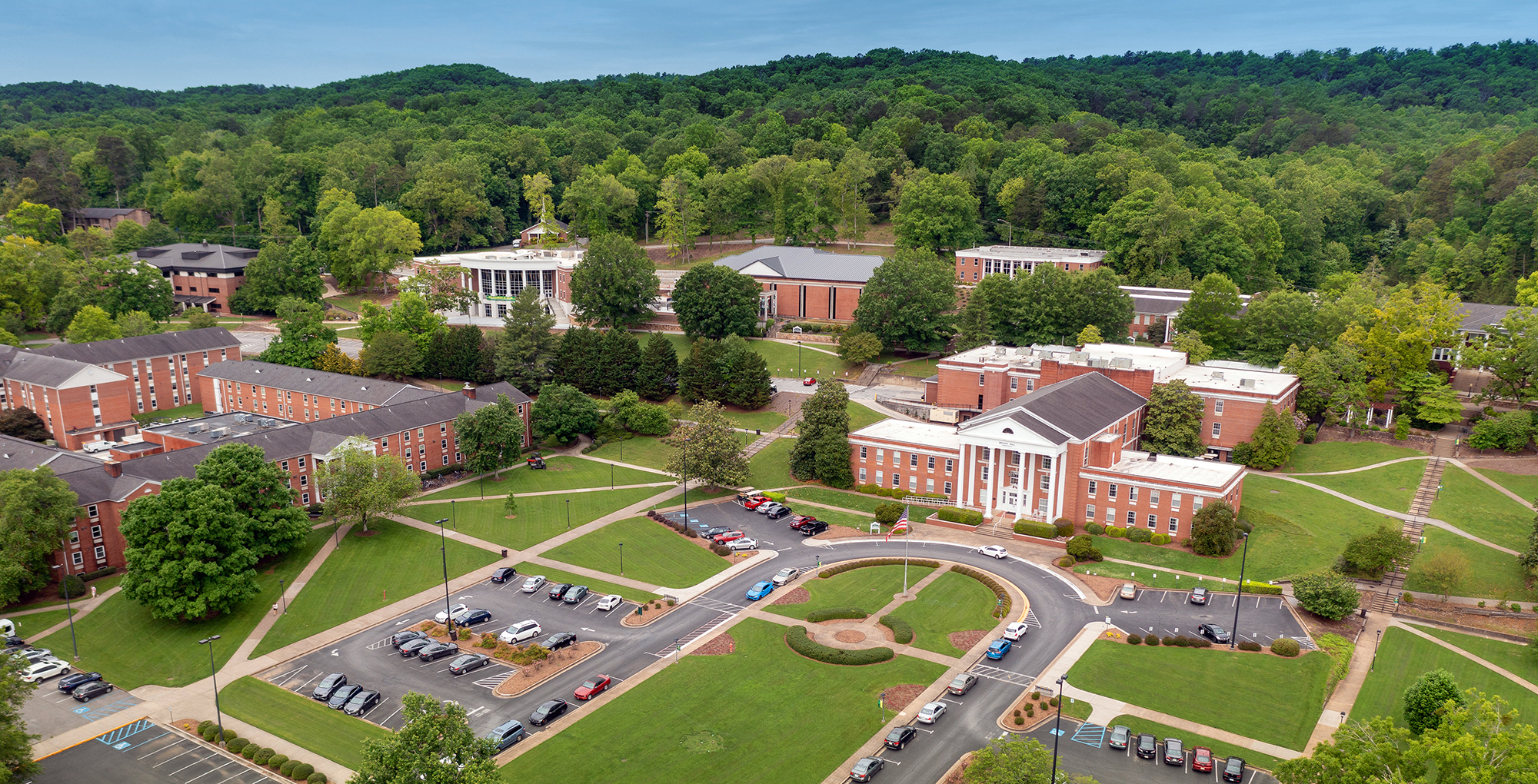
ISSUES CLASSES
Issues in Physical Science and Religion, Ken Caviness and Stephen Bauer
Textbook: Students select seven books from a list.
Students delve into issues of science, religion, and philosophy in Professor Caviness and Bauer's class. During class discussions, students explore questions and insights on worldview issues and the seeming conflict between science and religion.
“This is a thinking class,” says Caviness. “My job is to get students to think about what it means, and many keep thinking about the issues long after graduation.”
Exploring fundamental questions such as “How do you know what you know?” helps students discover their own world-views and where world-views fail. Students discuss the scientific method and realize that science doesn’t prove everything. Science is a successful model to explain some things, but there are limits of logic.
“Students must learn to think for themselves and to think critically, or else they are apt to be deceived,” says Caviness. “We talk these things out and think about the implications now, rather than ignore it and risk that later they’ll be unprepared to face some questions and may lose their faith.”
Methods
- Students read, write book reports, and present a philosophical topic.
- Students keep online journals about their homework, discussions, and thoughts related to the issues. Journals are shared among classmates as they grapple with ideas and topics.
Issues in Science and Society, Aaron Corbit
Textbook: Faith, Reason, and Earth History, Leonard Brand & Arthur Chadwick
Issues in Science and Society is a philosophical study of modern natural science as it relates to origins, biotechnology, bioethics, and environmental responsibility. Corbit leads students on an exploration of a variety of secular and Christian viewpoints on these topics and guides them in evaluating them from a Biblical perspective.
- Origins questions
- Origin of the universe
- Origin of life
- Origin of biodiversity
- The fossil record
- Human origins
- Human sexuality
- Abortion
- Environmental issues
Issues in Natural Science and Religion, Lucinda Hill
Textbook: Evolution, Douglas Futuyma
Theories of the Earth’s origins are debated in Southern’s Issues in Natural Science and Religion class. The class maintains a creationist viewpoint while exposing students to other ideas on origins that permeate the scientific world. Students learn about the Genesis creation, intelligent design, and evolution theories, while acquiring skills to critically evaluate scientific information.
Hill teaches from a university-level evolution textbook and points out how creationism differs and why she advocates short-creation theory.
Part of the coursework helps students learn to face new challenges to their belief
systems through finding resources, conducting literature searches, and reasoning through
the information collected.
Methods
- Readings and lecture
- Solving problems that surround the creation-evolution debate
- Project: presentation, bulletin board, or design a computer program